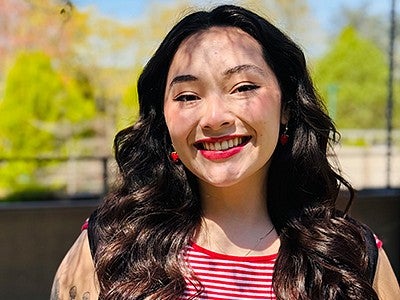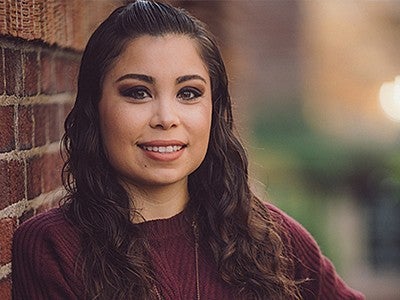Why earn a graduate degree in Couples and Family Therapy (CFT) at the University of Oregon?
Career Opportunities | Student and Alumni Spotlight | Clinical Training | Info Session | FAQs | Spanish Language Specialization | Graduate and Alumni Success | Accreditation | Cost of Attendance
Our Couples and Family Therapy (CFT) master’s program is for people who want to develop advanced counseling skills and provide counseling services for individuals, couples, intimate partners, and families.
Our curricula and practical experiences are inclusive and engaging, closely connecting students with faculty, researchers and clinical professionals.

Licensure Preparation
The 90-credit and nationally-accredited couples and family therapy (CFT) program is a rigorous, innovative, and exciting clinical training experience that leads to a master of science (MS) degree. Our program is for people who want to develop advanced counseling skills with individuals, couples, intimate partners, and families. This program prepares students to become professional family therapists in preparation for licensure in any US state that offers an LMFT license.
A NOTE ABOUT LICENSURE IN THE UNITED STATES: The University of Oregon’s CFT curriculum meets the program-level training requirements for licensure as a couples and family therapist in Oregon. Currently, all 50 U.S. states and the District of Columbia have a marriage and family therapy licensure law and, because the University of Oregon’s program is accredited by COAMFTE, our curriculum also meets the requirements for licensure in many states. However, state laws vary. As an incoming student in our program, we urge you to contact the licensing body in the state(s) in which you plan to practice for information about the licensure requirements of that state(s). We also encourage you to discuss this with your faculty advisor. We can arrange your clinical hours plan to reflect the hours you need post-graduation accordingly.
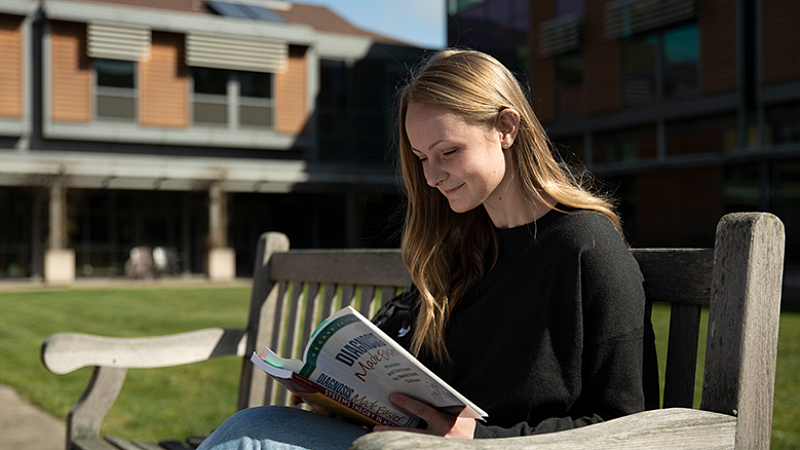
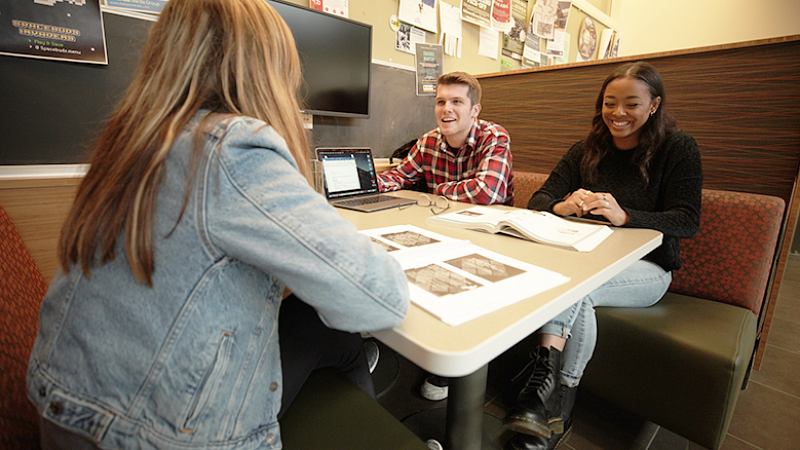
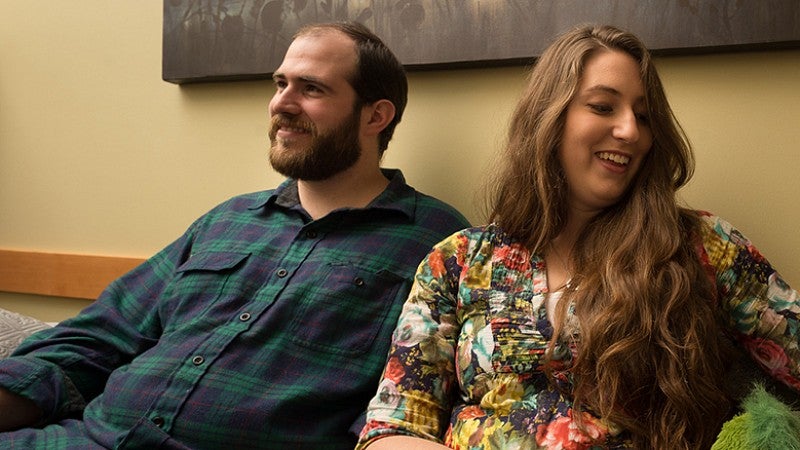
Excellent Instruction
The CFT program operates in a small cohort model (22 to 24 students admitted annually) at a Research I university.
All faculty are actively involved in research, clinical practice, and/or clinical supervision. All core CFT faculty have received multiple teaching awards.
A Supportive and Inclusive Learning Environment
Our program uses a cohort model, meaning students generally start together and graduate with each other. Clinical supervision courses are small (6–8 students to each faculty member), and we emphasize a noncompetitive environment that places high value on acceptance, cooperation, equity, and respect for diversity as central to education and clinical practice.
Direct Practice, Intensive Supervision
All students see clients at the Center for Healthy Relationships and a community-based clinic. Students receive innovative live and digital supervision, individual and small group clinical supervision, and participate in reflecting team and co-therapy practice.
Students have the opportunity to directly collaborate and provide co-treatment with other graduate student clinicians at the HEDCO Clinic.
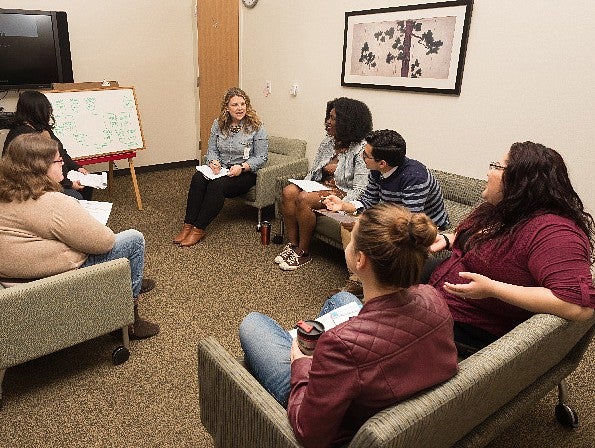
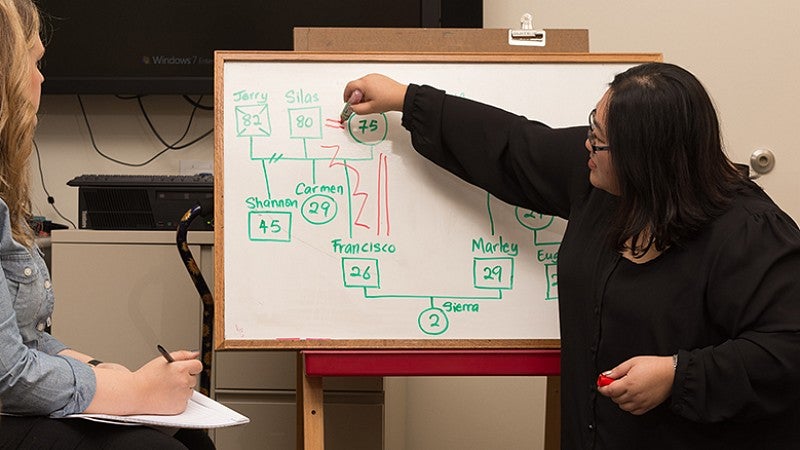
Although there are no prerequisite degree-specific requirements—a bachelor’s degree in any discipline, minimally, is required. The Couples and Family Therapy (CFT) program leads to a master of science (MS) degree.
Couples and Family Therapy graduate students may also add the Spanish Language Specialization, which is housed within the Counseling Psychology program.
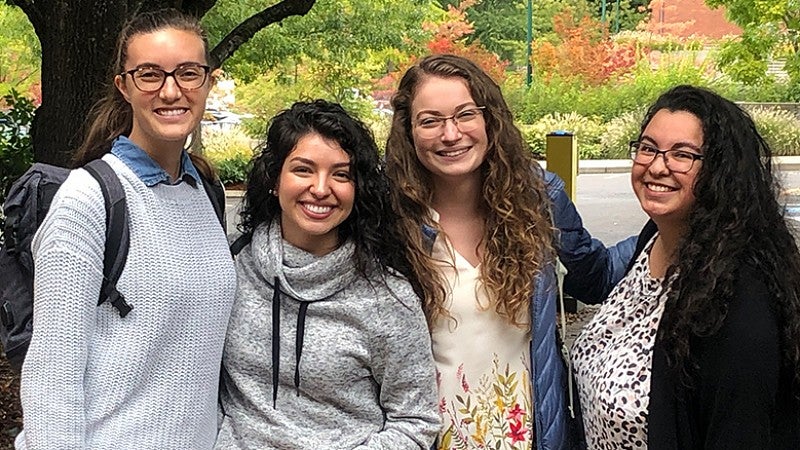
Exciting career opportunities in Couples and Family Therapy
Our graduates are very successful in securing employment in a variety of settings:
- Outpatient nonprofit agencies
- Schools and school-based agencies
- Hospital settings
- Adoption support centers
- Private practice
- Colleges and universities (faculty, supervision, counseling centers)
- Substance use treatment -- residential and outpatient treatment centers
- Eating disorder treatment centers
Many of our graduates also eventually move into clinical director positions, become clinical supervisors, and provide professional consultation—or go on to earn doctoral degrees and work in university settings.
Take the Next Step
Call us, email us, visit us or apply to the program. We’re here to answer your questions about how a CFT degree can grow your future.
Information Sessions
Have questions? Want to learn more? Please join our program’s virtual information session. Clicking on the date will open a new window where you can fill out a registration form. Use your browser’s back button to return to this page.
Thursday, April 23, 2026, 12:00-1:00 p.m. (PT)
To connect to the Couples and Family Therapy information session: Download the Zoom App “Zoom Client for Meetings” (If in an open area, please remember to wear headphones/earbuds during the Zoom session). Meeting details will be emailed to you. Questions may be directed to cft@uoregon.edu.
Frequently Asked Questions
Here, you’ll find the answers to frequently asked questions plus hints, tips, and links to video shorts that will contribute to your success as a CFT student at the College of Education.
Student and Alumni Spotlight
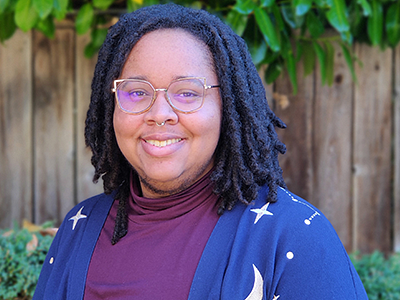
Graduate student awarded prestigious therapy fellowship
Day Hancock-Murphy, a graduate student in the CFT program was awarded the prestigious American Association for Marriage and Family Therapy Minority Fellowship for the 2023-2024 year. The fellowship, which is funded by the Substance Abuse and Mental Health Services Administration, aims to expand the number of therapists who are culturally informed and who can provide mental health and substance abuse services to underserved and minority populations.
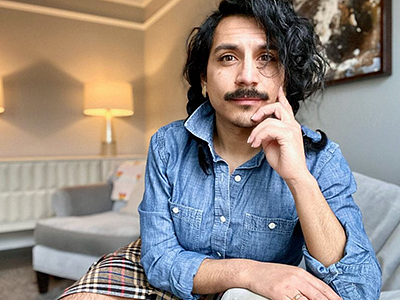
Navigating Trauma Together: Andres Brown
Andres Brown, MS ‘17 Couples and Family Therapy, knew they wanted to be a marriage and family therapist at the age of twelve. Growing up in a strict religious household, they learned at an early age how one’s mental health is closely tied to their family relationships. Their own experiences with family trauma have informed their practice as a therapist specializing in supporting LGBTQIA+ communities struggling with challenging family relationships.
Rich and Supportive Learning Environment
The UO CFT program draws applicants from all over the U.S. and all over the world. Students experience a rich and supportive learning environment and intensive clinical practice at the Center for Healthy Relationships and at a community-based location of their choosing.
Hands-On Experience
Courses incorporate recent research and innovations, draw on community expertise, and embed observations of live therapy sessions in the first term of the program.
Students are supported by an individual academic advisor, work closely with peers, and – informed by 4 program anchors – are encouraged to routinely and carefully reflect on their own personal and professional development.
Collaboration is Key...
Students also have the opportunity to collaborate with CFT faculty across multiple areas of interest and in many innovative community efforts – including for instance collegiate recovery, and child abuse and neglect prevention.
Clinical Training
The Couples and Family Therapy (CFT) program’s onsite clinic, the Center for Healthy Relationships (CHR) at the HEDCO Clinic, serves as the primary training site for CFT students. The clinic is located on the first floor of the College of Education, where the program is located.
CFT students start observing therapy sessions in the CHR within the first few weeks of the program to build familiarity and understanding of the therapy process.
Students work with clients at two clinical training sites during their second year in the program:
- Center for Healthy Relationships: Students are assigned to a small practicum group of 6-8 students and work closely with faculty supervisors who are AAMFT approved supervisors.
- Community Externship Site: Students interview and ultimately choose their externship site placement to match their interest. The CFT program has agreements with at least 15 sites across the Eugene/Springfield area.
Overall, students receive at least 5 hours of supervision per week (combined across sites) during their clinical training year. This includes the review of recorded and live sessions.
CFT students are required to obtain 350 direct client contact hours - 150 of those hours must be with relational systems such as couples, relationships, and families.
For more detailed information about the process of clinical training, please refer to:
Graduate and Alumni Success
Accreditation
Since 2003, the Couples and Family Therapy master’s program has been accredited by the Commission on Accreditation for Marriage and Family Therapy Education of the American Association for Marriage and Family Therapy and approved by the Oregon Board of Licensed Professional Counselors and Therapists.
The University of Oregon’s CFT program conforms to COAMFTE standards 12.0 educational requirements and meets or exceeds all educational requirements for MFT licensure in Oregon. However, although most states set their licensure educational standards according to CFT Student Handbook and COAMFTE guidelines, it is possible that moving to a state outside of Oregon may require additional coursework in order to pursue a license.
The University of Oregon’s CFT curriculum meets the program-level training requirements for licensure as a marriage and family therapist in Oregon. Currently, all 50 U.S. states and the District of Columbia have a marriage and family therapy licensure law and, because the University of Oregon’s program is accredited by COAMFTE, our curriculum also meets the requirements for licensure in many states. However, state laws vary. As a potential applicant to our program, we urge you to contact the licensing body in the state(s) in which you plan to practice for information about the licensure requirements of that state(s).
Commitment to Inclusion and Social Change
The Department of Counseling Psychology and Human Services strives to maintain an inclusive learning environment that values and celebrates diverse perspectives so that all students can flourish professionally and personally. Our view of diversity encompasses, but is not limited to, ability, age, culture, gender, language, nationality/geography, political views, race/ethnicity, religious beliefs and practices, sexual orientation, and socioeconomic status/class. Advancing social justice is central to our educational mission. We condemn the systemic racism, oppression, and violence against minoritized communities in the United States and stand in solidarity with calls for social justice. Our community strives to advance social justice through our research, pedagogy, service, and clinical outreach, which collectively aim to improve the lives of individuals, families, and communities. Our work toward these goals is an ongoing journey of learning, and we welcome input from our students, colleagues, alumni, and friends to support these efforts.
Four CFT Program Anchors
Over the years, the faculty and staff of the CFT program developed four anchors for the program that we believe are central to our success as a CFT community:
- We all have multiple intersecting identities (that engender both experiences of oppression and privilege) and are embedded in diverse contexts that we affect and are affected by us.
- We are all responsible for learning about privilege and oppression and to be open to the discomfort that this learning can bring.
- We all have the responsibility to learn how we react when we are uncomfortable (e.g. shut down, jump to conclusions, attack, turn away), and to endeavor/make efforts to engage/re-engage.
- We all have a shared responsibility in contributing to an open, collaborative learning community.


